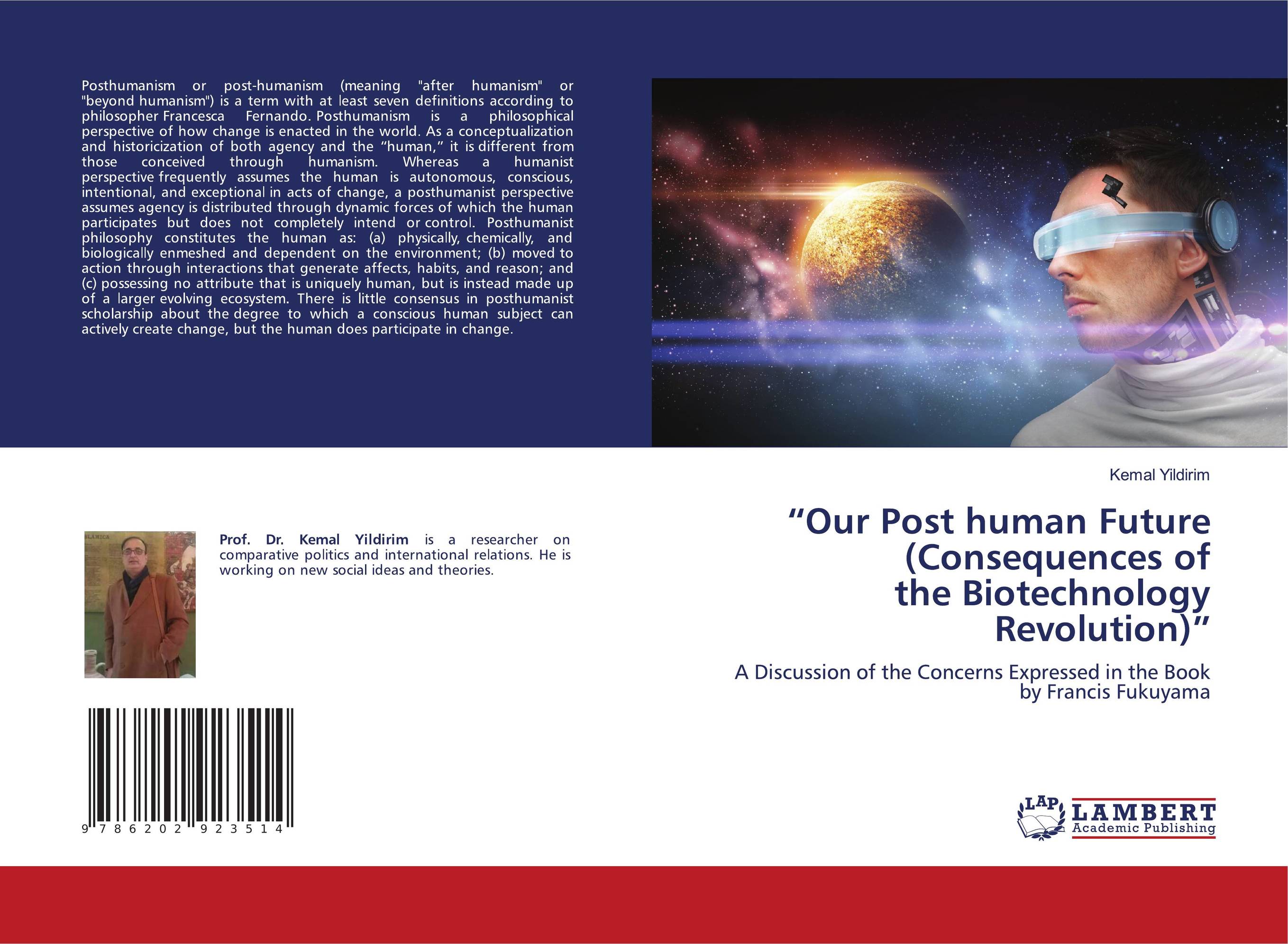| Поиск по каталогу |
|
(строгое соответствие)
|
- Профессиональная
- Научно-популярная
- Художественная
- Публицистика
- Детская
- Искусство
- Хобби, семья, дом
- Спорт
- Путеводители
- Блокноты, тетради, открытки
“Our Post human Future (Consequences of the Biotechnology Revolution)”. A Discussion of the Concerns Expressed in the Book by Francis Fukuyama

В наличии
| Местонахождение: Алматы | Состояние экземпляра: новый |

Бумажная
версия
версия
Автор: Kemal Yildirim
ISBN: 9786202923514
Год издания: 2020
Формат книги: 60×90/16 (145×215 мм)
Количество страниц: 60
Издательство: LAP LAMBERT Academic Publishing
Цена: 23208 тг
Положить в корзину
| Способы доставки в город Алматы * комплектация (срок до отгрузки) не более 2 рабочих дней |
| Самовывоз из города Алматы (пункты самовывоза партнёра CDEK) |
| Курьерская доставка CDEK из города Москва |
| Доставка Почтой России из города Москва |
Аннотация: Posthumanism or post-humanism (meaning "after humanism" or "beyond humanism") is a term with at least seven definitions according to philosopher Francesca Fernando. Posthumanism is a philosophical perspective of how change is enacted in the world. As a conceptualization and historicization of both agency and the “human,” it is different from those conceived through humanism. Whereas a humanist perspective frequently assumes the human is autonomous, conscious, intentional, and exceptional in acts of change, a posthumanist perspective assumes agency is distributed through dynamic forces of which the human participates but does not completely intend or control. Posthumanist philosophy constitutes the human as: (a) physically, chemically, and biologically enmeshed and dependent on the environment; (b) moved to action through interactions that generate affects, habits, and reason; and (c) possessing no attribute that is uniquely human, but is instead made up of a larger evolving ecosystem. There is little consensus in posthumanist scholarship about the degree to which a conscious human subject can actively create change, but the human does participate in change.
Ключевые слова: human future, Biotechnology, francis fukuyama, post human future



